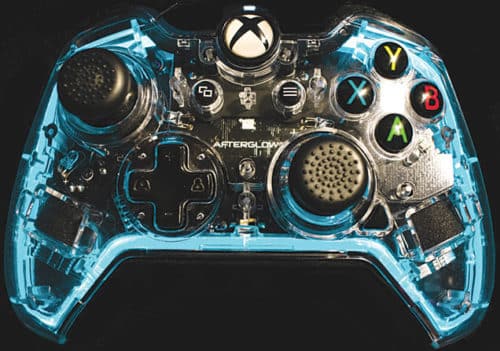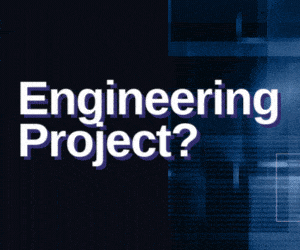Techies in the gaming industry have always been the guinea pigs of the technology world, and right now they are teeming with the buzz around blockchain technology. It is now believed to be the world’s leading software solution for digital assets.
After finding its successful application in almost every field—including finance, agriculture and geospatial areas—blockchain, the decentralised technology developed by an anonymous Satoshi Nakamoto, is now making an entry into the gaming space. In fact, some believe that the gaming industry is the first to see the next generation using blockchain technology.
Journey of the gaming industry
Since ancient days games have been an eternal part of human culture for social interaction. Back then, we did not have access to technology, and games were limited to the real world. Later, with advancements in technology, the era of video games was introduced, following which we had games that could be played on PCs and mobile phones.
Earlier, these games were mostly limited to one player, or another player sitting next to us. All of this changed as game developers brought massively multiplayer online (MMO) games—games that allow several players on the same server. Now, they are trying to shift their focus towards blockchain technology.
The gaming industry today
Gaming industry is one of its kind, and is fascinating for developers as well as users and investors. However, it still has several pain points. Let us introduce you to some of these, so you know how blockchain can resolve these issues.
Fear of losing digital assets
Some of us spend a lot of time and, sometimes, money to acquire precious assets in a game. But, there is always a fear that we can lose these any day. Several scenarios can result in this outcome. The game creator might go out of business, or some central authority might ban us from playing the game. This happens all the time, as we do not own these digital valuables. Rather, these are on a centralised server.
Digital assets of one game have no value in another
Suppose, you have spent a lot of time and money to obtain a sword in one game. You complete the game, and want to move on to the next one. You cannot use this sword in the new game, as it does not belong to you (even though you spent time and money acquiring it). You cannot exchange it for something else in another game, either.
Separate servers for different regions
In an MMO role-playing game, there are separate servers for different regions. In fact, many sub-servers are required to form the whole system. So, if there are players from different regions, multiple servers are used. Also, if one server crashes, a large area loses connectivity.
Micro-transaction is a myth
Free-to-play games are based on the strategy to offer low-cost items, which are upgraded step-by-step by paying an almost negligible amount. Gradually, this small amount may add up to a large amount.
For example, a game may offer a sword for US$ 15 and then upgrade it to the next level for US$ 0.25. Game developers can add, say, 100 upgraded features. We, as players, do not think too much before buying something worth US$ 0.25. Hence, more of us end up buying an item and upgrading it without knowing how much we end up spending on it.
However, traditional payment methods do not allow these micro-transactions. Payment channels like PayPal charge US$ 0.35 + 2.5 per cent of the transaction amount. Thereby, true micro-transaction is a myth in the gaming industry right now.
Developers are cheated
Credit card companies, especially in western countries, are extremely good in protecting their customer rights. If you have any issues regarding a purchase on your card, you are free to raise a dispute and ask for your money back. In that case, there is very little a game developer can do.
Moreover, game developers have to pay a penalty for every disputed transaction. Because of this, the gaming industry loses millions of dollars in customer support each year.
Blockchain to the rescue
Blockchain technology has the potential to end all of the above problems. Games based on blockchain technology offer solutions for game developers as well as players. There are infinite possibilities that blockchain has to offer. Some benefits are given below.
True ownership of virtual assets
In blockchain games, virtual assets belong to you, since you bought these. Creators, too, cannot take these assets away. These virtual assets may be stored in the form of tokens in your digital wallet. The tokens can be fungible or non-fungible. With blockchain games, you do not lose your digital assets, even if you get banned from, or quit, a game, or the company shuts down.
Inter-game compatibility
Since characters, items or karma of the games are stored on blockchain, it allows you to see your existing characters or items on a completely unrelated game. This could open a new era of gaming where characters from different game genres could play together in one game.
In case you are building your own game, instead of building new characters, you can use assets of an existing game or invite players from large game communities to instantly jump into your game with the characters they already have. This is one of the coolest features of blockchain technology.

Uniformity in virtual assets of different games
Design of blockchain games is fundamentally different from traditional ones. These games do not allow in-game currency to get generated infinitely. Presently, in some games, gold coins can be generated by killing a monster, while in others, these might be a scarce resource. Blockchain can end this infinite generation of coins in a game.
End the need for sub-servers
Blockchain technology in MMO role-playing games ends the need to have different servers, or sub-servers for a different region. Hence, there can be no blackout in a particular region due to failure in the server of that or another region.
Cheap and secured trading of virtual assets
Blockchain allows you to convert your virtual assets into tokens, making these free for buying, selling and trading at will. A record of all transactions is present on the blockchain itself, eliminating the threat of fraudulent activities.
Game characters, items and the like can be managed through smart contracts, as has been done in Cryptokitties—a game that created much hype in the blockchain industry.
Blockchain technology even has the potential to offer micro-transactions involving cryptocurrency in transactions.
Building blockchain games
Realising the potential of blockchain technology for next-generation online games, developers have already started using it across several verticals in the gaming industry. There are several platforms for the development of blockchain games, in addition to payment gateways for purchasing such games. While some are already in the market, others are in beta mode or have raised funding through Initial Coin Offering. Every project has its own aim, but all of these together seem promising for building the future of gaming.
Blockchain games available today
There are many blockchain-based games available in the market. Most are built on Ethereum, like Crytopkitties. The game uses ERC 721 tokens, which are non-fungible, indivisible and unique. It uses smart contracts for ownership and distribution of virtual cats. It is considered the first non-financial application of blockchain.
Other blockchain games are Ethermons, Cryptopets, Cryptopuppies and Etherarmy.
Ethereum is not the only blockchain to attract game developers. A blockchain game called Spell of Genesis is built on Bitcoin.
Payment systems
There are a number of blockchain-based platforms that are built for selling, buying and promoting online games. Some of these are GameCredits, Enjincoin and Refereum.
Gaming corporations, like Valve Corp., allow you to buy games through Bitcoin.
Platform for building blockchain-based games
Such platforms promise to offer all the features discussed above for blockchain games. These aim to simplify owning, sharing and trading of virtual assets. Platforms such as Bitguild and Chimaera are expected to launch this year. There are other platforms like Decentraland and Voxelus that offer a virtual space for blockchain-based 3D graphics and games.
Blockchain technology has already started expanding its roots in almost all verticals of the gaming world. From tokenisation of virtual goods to improving betting and payments, every field is undergoing several experiments.
Although, it has a lot to offer, there are issues of speed with blockchain, especially when it comes to MMO role-playing games. At present, we have a MMO role-playing game based on blockchain, but it is still in beta mode.







